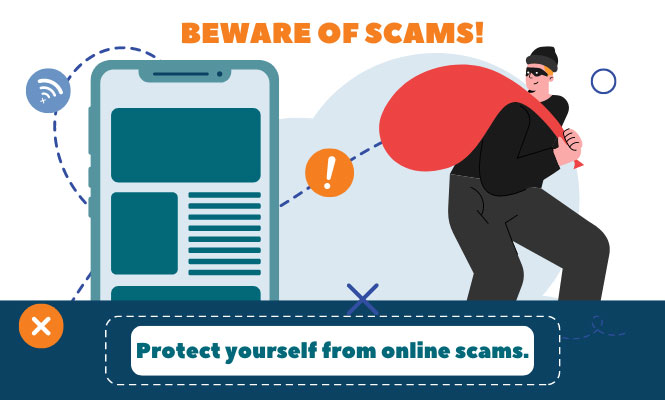In the era of connectivity, social media has become an integral part of our lives. It’s a platform for sharing, connecting, and staying updated with friends, family, and the world at large. However, alongside the benefits, the digital landscape also harbors potential risks, particularly in the form of social media scams. These scams can range from fake giveaways to elaborate identity theft schemes, targeting unsuspecting users. To safeguard yourself, it’s crucial to be aware of these scams and adopt preventive measures. In this article, we’ll explore common social media scams and provide practical steps on how to protect yourself.
Identifying Fake Profiles and Impersonations
One of the most prevalent scams on social media involves fake profiles and impersonations. Scammers create accounts pretending to be someone else, often using the name and images of well-known individuals or companies. They may then attempt to connect with unsuspecting users, hoping to exploit their trust.
Protection Tip: Always scrutinize friend requests and messages from unfamiliar accounts, especially if they claim to be someone you know. Verify identities through other channels before sharing any personal information.
Recognizing Sensational Headlines and Clickbait
Scammers often use sensational headlines and clickbait tactics to grab your attention. These may lead you to click on a link that appears intriguing but is actually a trap. Once clicked, these links can lead to malware downloads, phishing pages, or other malicious activities.
Protection Tip: Exercise skepticism when encountering sensational content. Verify the source of information before engaging, and be cautious of overly dramatic headlines that seem too good to be true.
Guarding Against Phishing Links and Spoofed Websites
Phishing scams are prevalent across various online platforms, and social media is no exception. Scammers may send links that appear legitimate but redirect you to fake websites designed to steal your login credentials or install malware on your device.
Protection Tip: Avoid clicking on links from unverified sources. Hover over links to view the actual URL before clicking, and be cautious of redirected or misspelled domains.
Rejecting Requests for Money or Personal Information
Never share financial information or send money to someone you’ve only interacted with online, regardless of the platform. Have i been scammed? may pose as friends or acquaintances in need, tugging at your empathy to swindle you.
Protection Tip: Verify the legitimacy of requests through other channels, such as a phone call or face-to-face conversation. Be cautious when asked for personal or financial information online.
Fortifying Your Privacy Settings
Your social media profiles contain a wealth of personal information. Regularly reviewing and adjusting your privacy settings can help limit the information accessible to strangers. This reduces the likelihood of falling victim to scams.
Protection Tip: Familiarize yourself with the privacy settings of your chosen social media platforms and customize them to your comfort level. Restrict access to sensitive information to trusted contacts only.
Steps to Take if You Encounter a Social Media Scam
- Report the Account: Most social media platforms have reporting features. Use them to flag suspicious accounts or content, aiding in their removal.
- Warn Others: If you encounter a scam, inform your friends and followers about it. This can prevent others from falling victim to the same scheme.
- Change Your Password: If you suspect your account has been compromised, change your password immediately to prevent further unauthorized access.
In conclusion, social media scams are a prevalent threat in today’s digital landscape. By staying vigilant, scrutinizing friend requests and messages, and understanding common tactics used by scammers, you can protect yourself from falling victim to fraudulent schemes. Remember, a healthy dose of skepticism and cautious online behavior can go a long way in safeguarding your digital presence.



